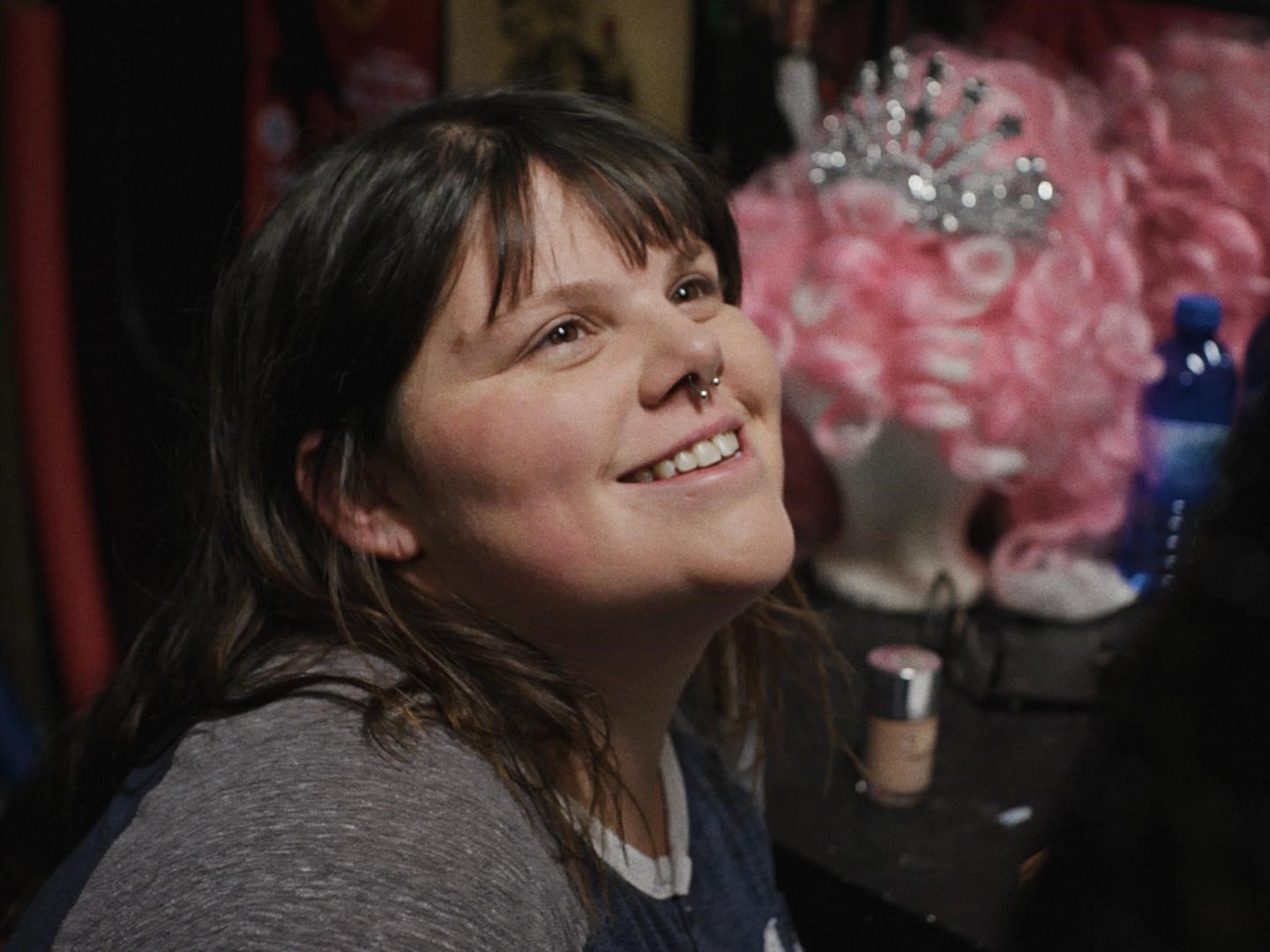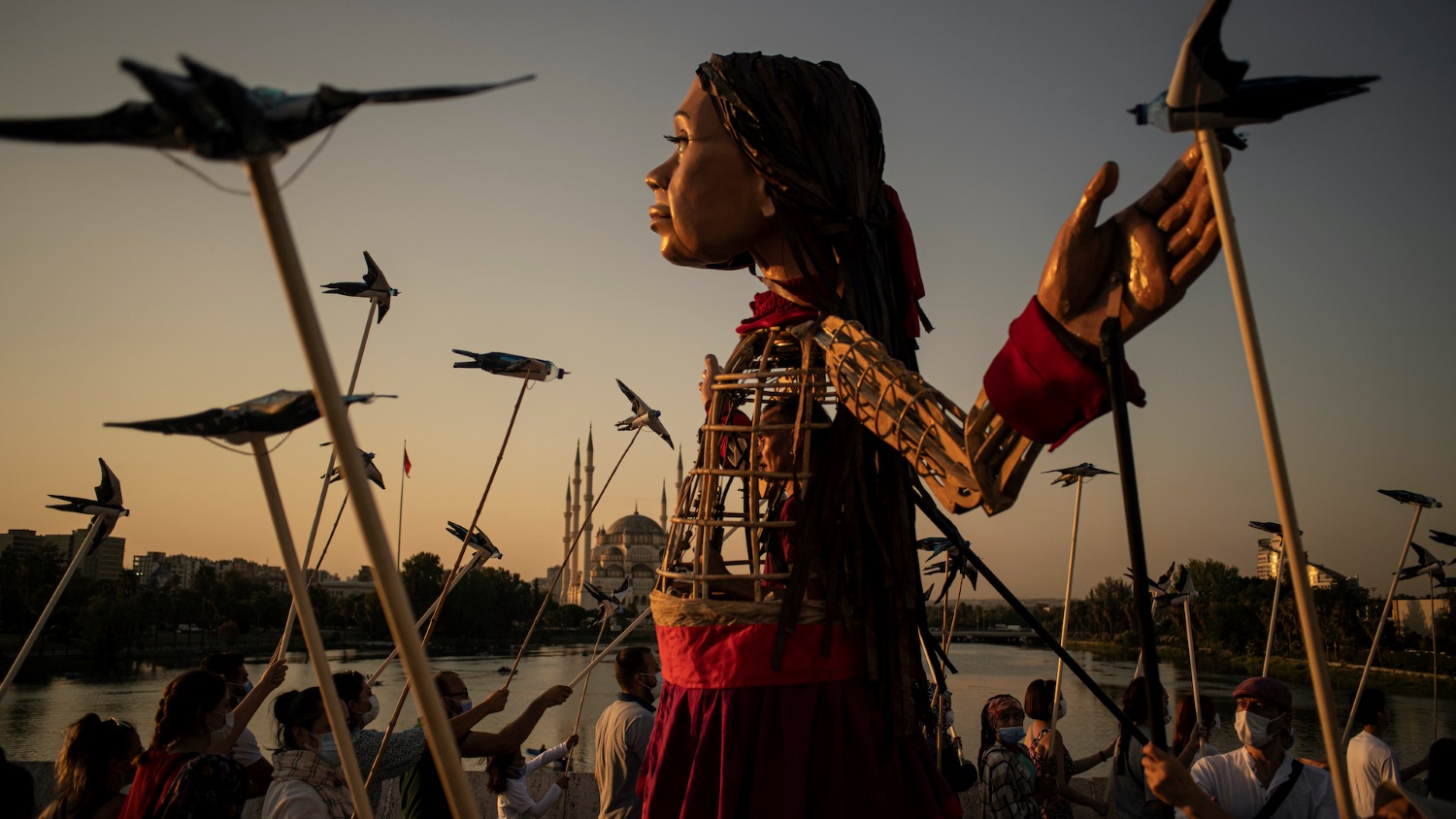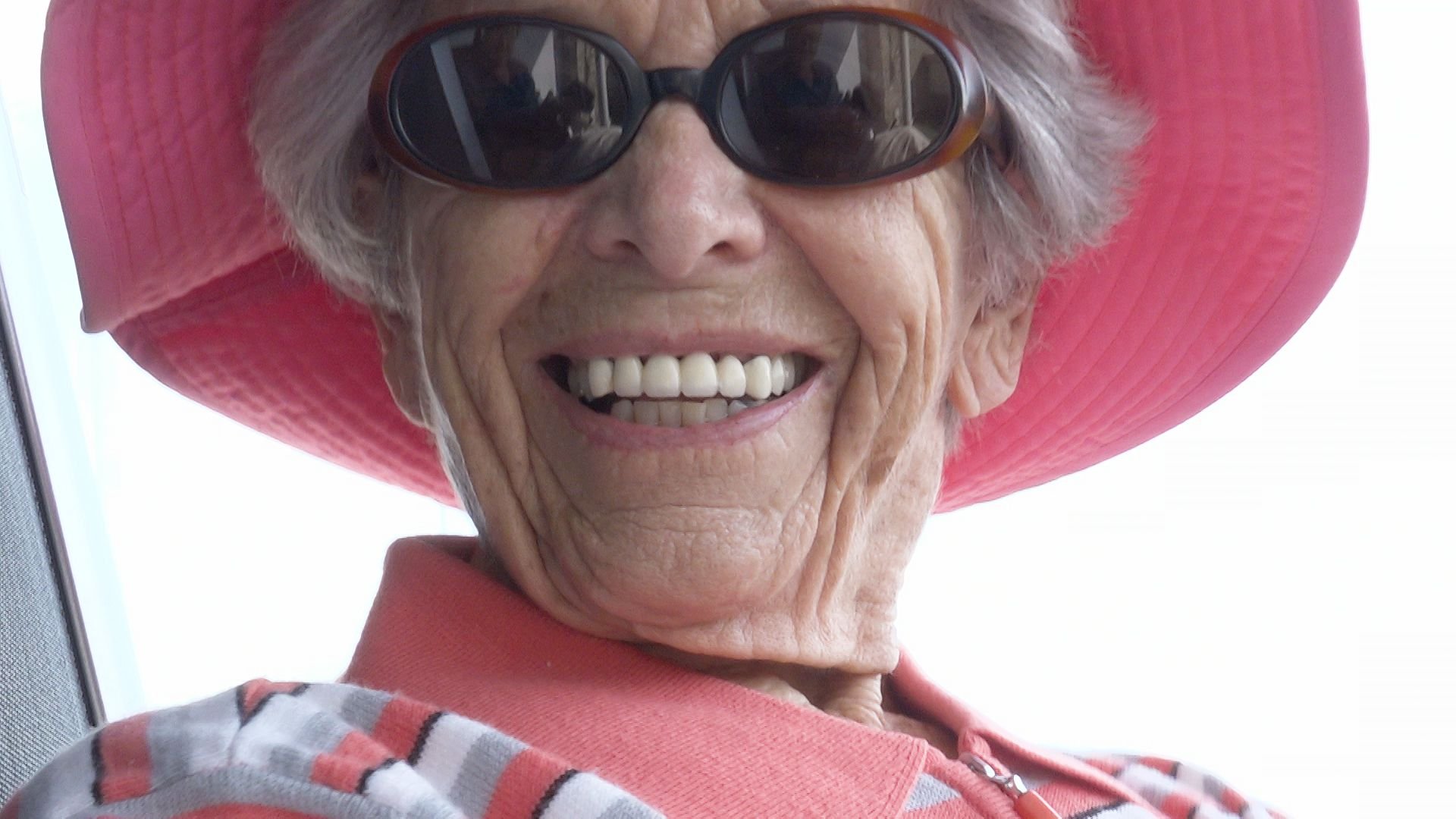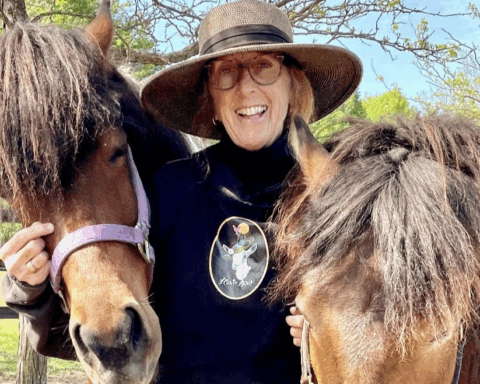Caiti Blues, Justine Harbonnier’s first feature, is a tender portrait of Caiti Lord at a pivotal moment in her life. A talented singer, Caiti has spent her life preparing to be a Broadway star. However, on the eve of her 30th birthday, the dream has stalled. Self-exiled in a remote former coal-mining town in New Mexico, Caiti is waiting tables, hosting a weekly local radio show, and licking her wounds. The populist Trump presidency adds to her melancholy.
Via cinéma verité, home movie clips of childhood antics, and lyrics from her compositions, Harbonnier’s film immerses us in the turmoil of Caiti’s mind. “Lost myself along the way. Still barrelling through. Can’t stay. Can’t leave,” she sings in the first few minutes of the film.
Harbonnier’s short films have screened at such festivals around the world as DOXA and FID Marseille as well as the MoMA in New York City, while Caiti Blues screened at Hot Docs where it won the Special Jury Prize for Canadian Feature Documentary, followed by a selection in Cannes’ ACID programme. She splits her time between Montreal and France, where she has documentary films in development—on both sides of the Atlantic.
POV spoke to the director prior to the film’s Quebec premiere at the RIDM.
JH: Justine Harbonnier
POV: Megan Durnford
POV: How did you meet Caiti?
JH: I met Caiti 10 years ago when I was creating my short film ll y a un ciel magnifique et tu filmes Angèle Bertrand. I was at a farm in Florida to film my friend Angèle and by happy accident, Caiti was also a WWOOFer at the farm. [WWOOFers work on organic farms in exchange for room and board.] Both Angèle and Caiti were really in search mode trying to figure out what they wanted to do with their lives.
I was moved by Caiti right away, by her musical talent but also because she emanated fragility and strength at the same time. I was fascinated by this ambivalence. I really enjoyed filming with her in Florida so she stayed on my mind. Then in 2016, I had another chance to film Caiti when she was at a very different point in her life.
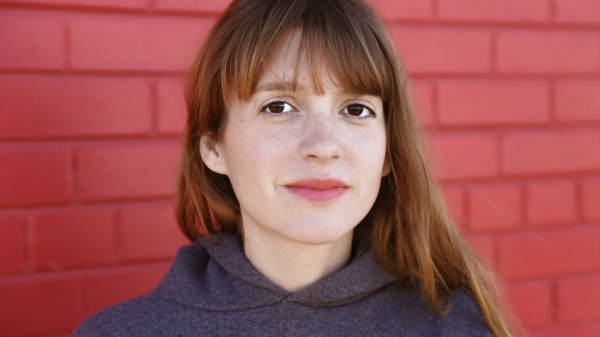
POV: What happened in 2016?
JH: I was living in Montreal. Trump had just been elected. My friends and I were really in shock and there was a serious level of fear. I wondered how Caiti was doing. I found out that she had moved from New York City to the little town of Madrid, New Mexico.
I had an intuitive sense that it was an important moment in time. I was already was intrigued by Caiti. I wondered how she would manage in this new political environment and why she had moved to this remote town. I wanted to touch base with her. I certainly had no idea that I would be filming her for years and that this would lead to my first feature-length film!
I went to Madrid and filmed her for about a month and a half. She was at a pretty difficult point of her life. So it was a real meditation on melancholy, on blues. I really felt that there was a clear connection between what was happening with her on a personal level and what was happening in the US on a political level.
POV: At one point in Caiti Blues, there is a flashback of Caiti as a young adult in the Broadway show Cats. She clearly had had some professional success in musical theatre. What happened?
JH: Yes, this is part of her life that is in the past. There is no reference to any professional disaster in the film because I do not know exactly what happened and I did not want to risk imposing my psychological interpretation. Caiti never articulated anything. There was no clear cause or specific turning point. She set her childhood dream on pause for a multitude of reasons.
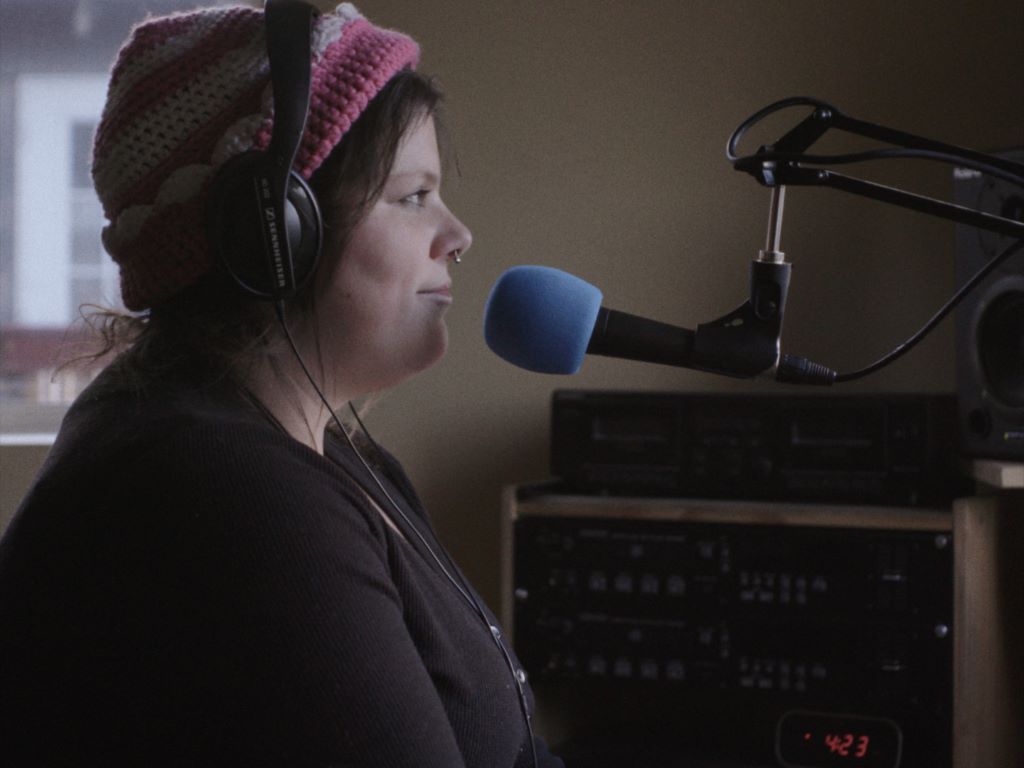
POV: Before Caiti Blues, you had only directed shorts. Could you tell me about the challenges of directing your first feature film?
JH: Well it took many years, about seven years! I learned a lot “by doing.” I had already explored some relevant concepts, such as the significance of landscape in [the short film] Andrew Keegan Is Moving.
Working with a crew was new. I was the cameraperson for my first two shorts. It was so enriching to have collaborators but it was sometimes very challenging too. There were about three or four years of writing. Lots of research. Ultimately, I needed a lot of time to “find” the film.
POV: You participated in many artist residencies and festival markets, including Docs-in-Progress Cannes, FIFIB, IDFAcademy and Moulin d’Andé. Which ones were the most beneficial?
JH: They all helped the film to progress. One of the first was a writing workshop, FIFIB (Festival International du Film Indépendant de Bordeaux), in France. I worked closely with a mentor that I had chosen. When I got to Cannes Doc, I was much further along. We had filmed more. They helped with production.
The very first residency I did was with GREC (Groupe de Recherches et d’Essais Cinématographiques), which supports the creation of short films. I was mentored by the renowned French filmmaker Alice Diop. At that point, I had imagined Caiti Blues as a short film. Alice and I had lots of interesting discussions regarding the influence of literature on film. She liked my project a lot and she put me in touch with Julie Paratian at Sister Productions, in 2017 right at the beginning. Together, Julie and I realized that a short film was not the right vehicle for everything that I wanted to include. It needed to be longer, it had to be a feature.
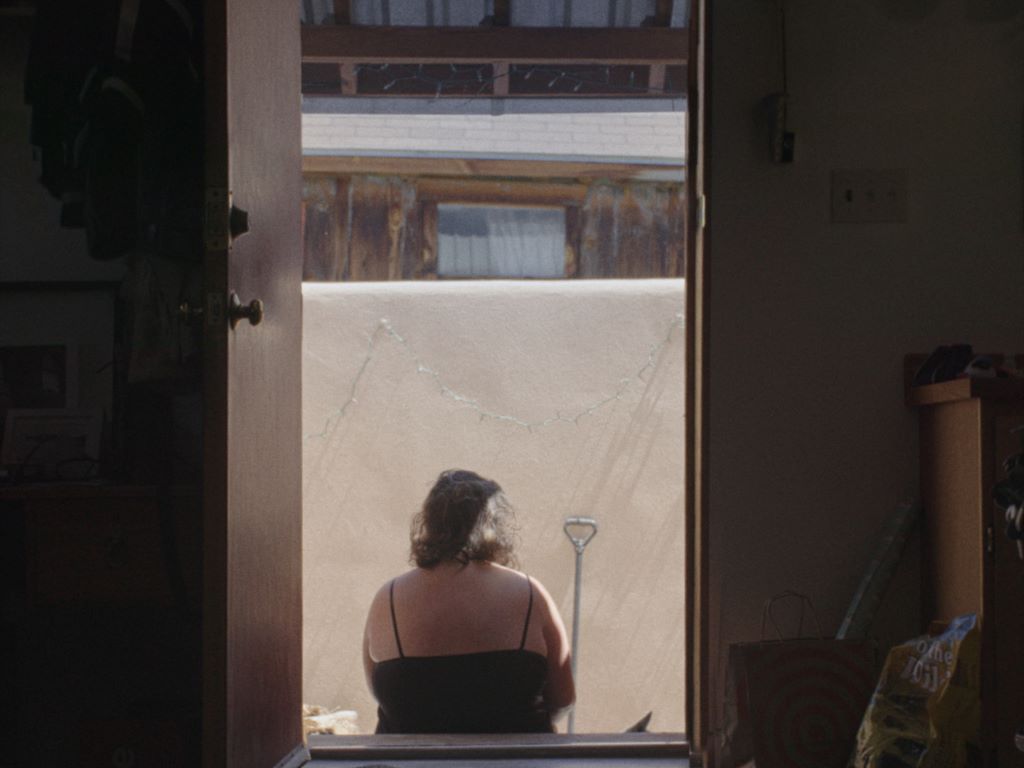
POV: Your artist statement includes this phrase “Our ideals were rooted, in part, in American culture and its reservoir of stories.” But you are not American. Why would you refer to our ideals?
JH: In France we are inundated with American TV series. I spent my childhood watching American shows, such as the fantasy drama Charmed, plus lot of romantic comedies. When I was little, my friends and I all dreamed of going to California. The American Dream was our dream. So Caiti and I had tons of common cultural references.
While studying literature at Université de Montréal, I travelled a lot in the States. I realized how much I had grown up with American culture. For instance, I felt a strong connection to Hollywood. Caiti dreamed of Broadway. I had bought into these fantasies too—even though I did not have any acting or singing talent. So I could understand Caiti and her quest for fame.
POV: Caiti Blues ends on a real high note; Caiti has a new job, a new boyfriend and she is singing her own compositions on stage. Were you ever worried that she would stay in a melancholic holding pattern in Madrid ?
JH: I filmed Caiti for four years and I was so sure that the end [of the film] would be when she left Madrid. I was sure that she would leave! As far as I was concerned that was going to be the “happy end.”
I have to admit, I did want it to end in a hopeful way. I hoped that she would leave the Blues behind. So, at one point, I was trying to figure out “what are the most beautiful aspects?” of the life that Caiti has built for herself in Madrid. And I highlighted those things.
POV: Why use a 4:3 aspect ratio?
JH: We made this choice very early with Léna Mill-Reuillard, the DOP. I really like 4:3 for portraits. It creates a real intimacy with the subjects. It gives them higher status. We are really very close to Caiti. You don’t know what is around the subject.
I am very keen on that framing. If you want to film something else, you have to move the camera. And when we see the landscape, it exists on its own. There are some vignettes of mountains that are “cut” on either side. It feels strange. We are so used to seeing landscapes in 16:9. We are forced to look at the landscapes differently. The most important part for me is that the landscape is in dialogue with Caiti.
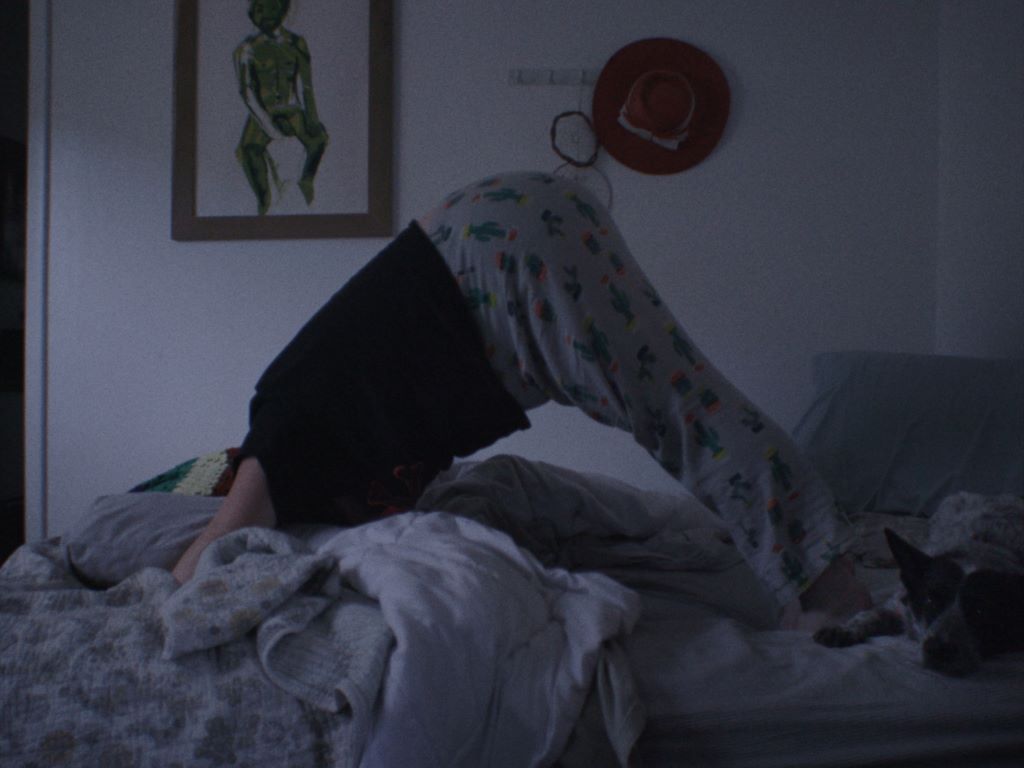
POV: You have made two films about quests. Are you currently on a quest?
JH: I am not really searching as much now. My first films were really representative of my 20s. Now I am in my early 30s. I am a bit more settled now. On the other hand, regarding the new film projects that I am developing, I am definitely in a “quest” mode. I have this need to conduct research, to be motivated by a significant question, an existential question, and then looking for answers in the form of a documentary film.
POV: Do you have films in development?
JH: I am working on two right now, one in France and one in Canada. One is Les enfants vont bien. I filmed my mother for a year, her last year before retirement. She taught children with physical handicaps. A bit like Caiti Blues, it is an intimate portrait. I am interested in how an institution, the school, deals with the issue of handicap. I am interested in touching on this societal issue via my mother’s story. It will be produced by Sister Productions. I plan to co-produce it.
I have another project called La Simulation. This one is a Canadian project. I will be following a delegation of 30 political science students from the Université de Montréal who are participating in Model UN. Delegations of young people from around the world gather to simulate the work of the United Nations. They are future politicians and diplomats.
POV: You have a Masters in Comparative Literature. How has this literary background influenced your filmmaking?
JH: I think that it influences the way that I want to tell a story. The subjects have novelistic characteristics, which I follow and that I create, in a way.
My love of literature is apparent in Caiti Blues via the “chapters” created with screen text. Also, I am very interested in Caiti’s choice of words, for instance when she is hosting a radio show, when she writes songs. I wanted to highlight the rhythm of her speech.
POV: During the film, we can sense that Caiti is waiting for her “big break” an opportunity for celebrity. Is it possible that your film is her big break?
JH: It’s possible. Right now, I am presenting the film in France. Many spectators have asked me whether Caiti has signed with a production company. Is she famous now? Well, no, there isn’t any big news regarding her musical career. On the other hand, she came to Cannes with me. And she did a concert after the screening. Also, she went to a festival in South Korea with the film. (I couldn’t go!) That was an amazing occasion for her.
She still lives in Madrid but the Caiti in the film is pretty different than the current Caiti. She is currently teaching singing. Also, she is completely sober, she doesn’t do drugs, and she is much calmer. She isn’t struggling now the way she used to.




